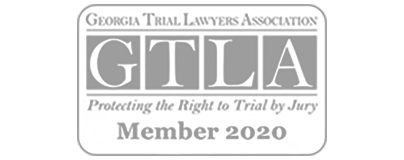Home | Glossary of Personal Injury Terms | Appeal
Appeal
Navigating the aftermath of a personal injury case can be a daunting task, especially if the judgment did not go in your favor. In Georgia, if you find yourself in this situation, you have the option to appeal the decision. This article will shed light on the appeal process, including the necessary timelines, the role of evidence, and what you can expect from the appellate court.
The Right to Appeal
In Georgia, you can pursue at least one appeal if you believe there are valid grounds to challenge the judgment in your personal injury case. While it is true that most appeals do not succeed, this should not discourage you from seeking what you believe is rightfully yours.
Important Deadlines to Remember
It’s crucial to act swiftly after receiving a judgment. In Georgia, the window for filing an appeal is 30 days from the date of the judgment. Missing this deadline could result in losing your opportunity to appeal, so be mindful of the timeline.
Understanding the Appeal Process in Georgia Personal Injury Cases
It’s essential to note that an appeal is not a new trial; rather, it is a review of the existing trial record. The appellate court does not entertain new evidence or witness testimonies. Instead, the court examines the trial court’s documentation to determine if any errors were made during the initial proceedings.
If your appeal is successful, it typically means the appeals court identified significant issues in the trial court’s handling of your case. In some instances, the court may allow oral arguments from both parties, providing an opportunity for judges to ask questions and clarify points.
Burden of Proof
When appealing a decision, the onus is on the appellant—the party appealing—to demonstrate that the trial court made an error. This means that if the defendant (the party found at fault) chooses to appeal, they must also carry this burden of proof.
Standards of Review in Appeals
The appellate court utilizes various standards of review to assess the merits of your appeal. These include:
- De Novo. This standard allows the appeals court to review legal issues without giving deference to the trial court’s conclusions. It is primarily applied to pure legal questions.
- Abuse of Discretion. This applies when a trial court makes a decision that is within its discretion, such as evidentiary rulings. To succeed under this standard, you must demonstrate that the trial court’s decision was almost certainly incorrect.
- Clear Error. This standard pertains to factual findings. Since the appellate court does not hear witness testimonies, it rarely overturns the trial court’s fact-finding unless there is a clear error.
- Sufficiency of the Evidence. This evaluates whether the evidence presented at trial was adequate to support the outcome. The appellate court typically upholds the trial court’s decision unless there is a complete lack of supporting evidence.
- Plain Error. This standard addresses obvious mistakes that were not contested during the trial. The appeals court considers these only if the errors were particularly serious.
- Harmless Error. After identifying an error, the court assesses whether it was harmless or prejudicial. If deemed harmless, the court may overlook it, but if not, you might qualify for a case reversal or remand.
Potential Appeal Outcomes
When you file an appeal, there are three potential outcomes:
- Dismissal. The appellate court may dismiss your appeal, affirming the trial court’s decision. You might still have the option to appeal to the Supreme Court of Georgia, although it is rare for them to hear such cases.
- Overturning the Decision. If the appeals court finds clear errors, they may overturn the trial court’s decision, which would be a favorable outcome for you.
- Remand. The court may send your case back to the trial court with specific instructions on how to proceed. This gives you a second chance at a favorable ruling.
Dismissals are the most prevalent outcome in appeals, so it’s critical to prepare your case thoroughly.

GEORGIA PERSONAL INJURY LAWYER NEAR ME
The Importance of Legal Representation
While you have the right to file an appeal independently, the complexities involved make it highly advisable to seek the assistance of an experienced personal injury attorney in Georgia. The intricacies of appellate law can be overwhelming, and the chances of success are significantly higher with professional guidance.
In conclusion, if you find yourself facing an unfavorable judgment in a personal injury case, understanding the appeal process and seeking legal counsel can make a considerable difference in achieving a favorable outcome.
GET A FREE CASE REVIEW
PRACTICE AREAS
Frequently Asked Questions?
Do I need a personal injury attorney?
The Jewkes Firm is well-versed in effectively challenging major insurance companies on your behalf to secure the highest settlement permissible by law. Our primary objective is to ensure your optimal recovery. It is only after this point that we assess the worth of your case.
What is the deadline for filing an injury case in Georgia?
The timeframe for filing an injury case, also known as the statute of limitations, can vary significantly. As per OCGA §9-3-33, you are granted a two-year period from the date of your injuries or the passing of a family member to initiate your personal injury claim.
What is the cost to hire a personal injury attorney?
There is no upfront cost associated with hiring a personal injury lawyer. Our fees are based on a percentage of your settlement, meaning you only pay if we successfully recover compensation. Our top priority is ensuring your well-being and helping you return to your normal life.
What damages can you recover from a personal injury?
A personal injury lawyer aims to establish negligence and seek restitution for the harm caused by the liable party. Additionally, you may be entitled to compensation for funeral costs, medical expenses, and income lost if you are a family member of someone who died as a result of an injury.
Free Case Evaluation











